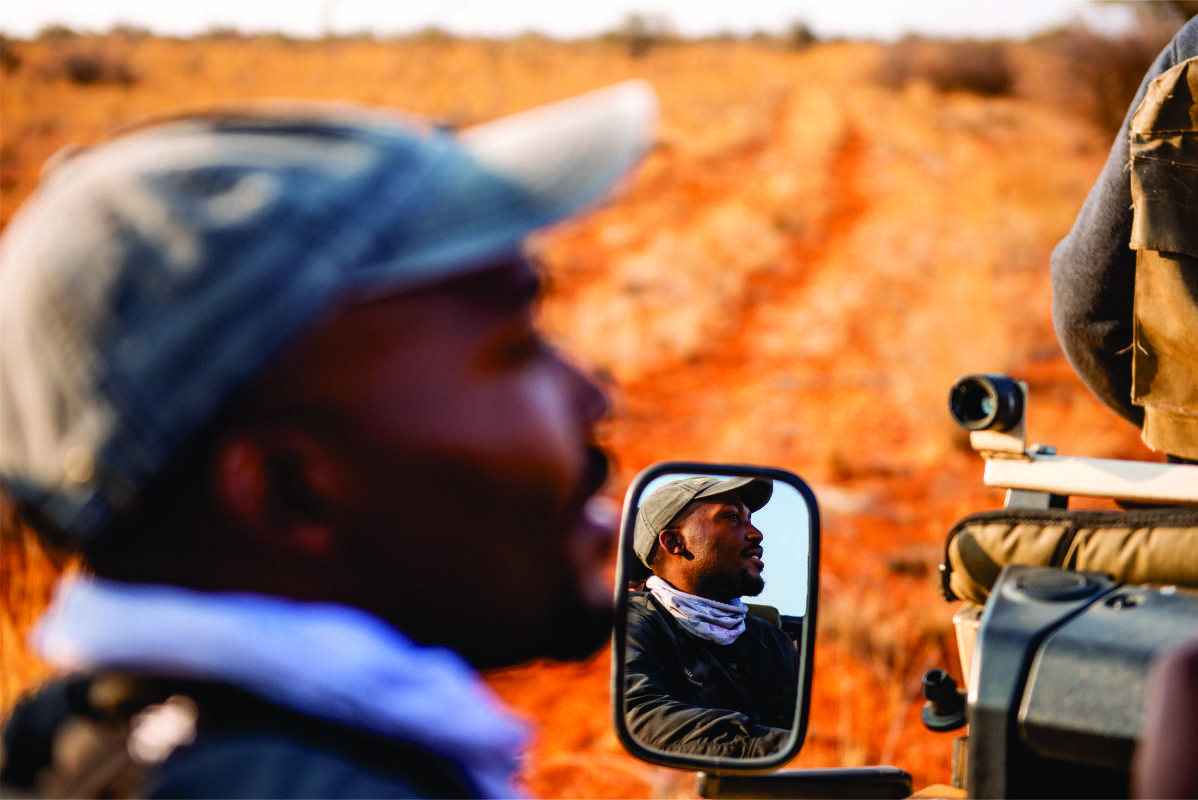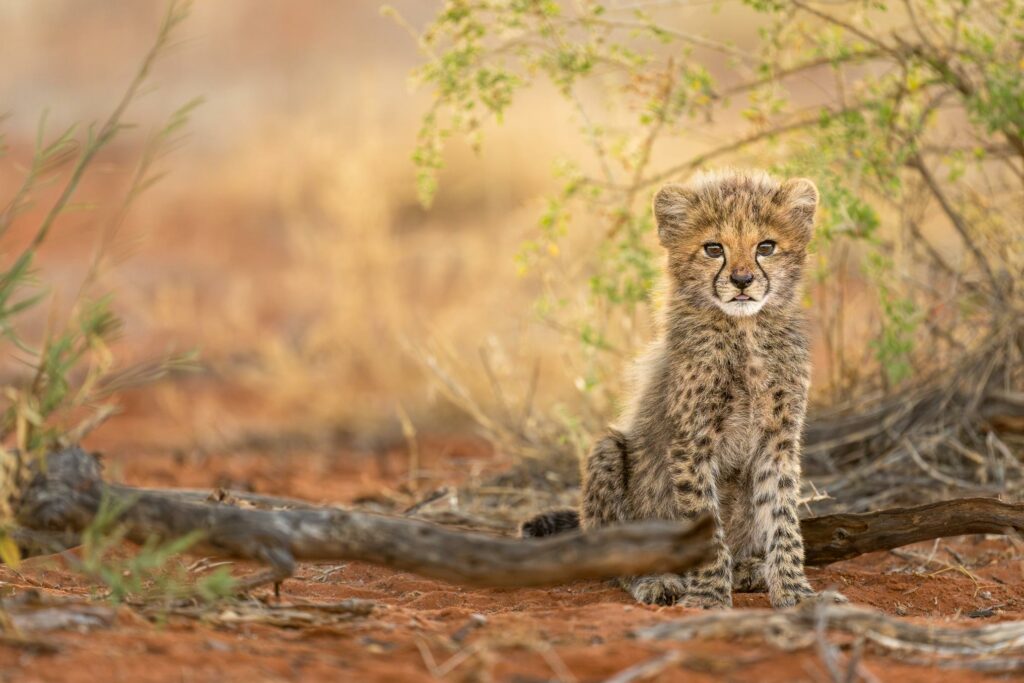FROM CONSERVATION STUDENT TO CONSERVATOR
Conservator Prince Ngomane’s dream to protect the natural environment and to work at the cutting edge of conservation is coming true at Tswalu Kalahari.
‘It doesn’t matter where you start in life. Never give up on your dreams,’ believes Prince, who grew up in a village called Mganduzweni in Mpumalanga and today is a valuable member of Tswalu’s conservation team. Prince arrived at Tswalu five years ago as a final-year student, part of a national diploma in nature conservation through Tshwane University of Technology.
Tswalu only accepts two internship students a year, and these positions are highly sought after. Students are exposed to a wide range of conservation and wildlife management projects, from game counts to animal translocations, and learn research and land surveying skills, too. They are also introduced to the hospitality side of the business. One of the most important aspects of this practical year is the relationship forged with the mentor assigned to each student.
‘I wasn’t the brightest student in the class,’ Prince admits, ‘but I have always been the guy who gets things done’. He attributes his success to hard work and a hunger for knowledge, and is quick to credit the excellent mentors who have walked alongside him at Tswalu.
Dylan Smith, who heads up the research centre on the reserve, was instrumental in introducing Prince to the wonders of the southern Kalahari, teaching him the importance of relying on his senses in the bush, from tracking skills to identifying the signs left in the wild by animals. ‘To understand reserve management, Dylan taught me that I first needed to understand the bush.’

The following year Prince was offered a bursary by Tswalu to continue with his studies and complete a B Tech degree. Under the guidance of conservator Richard Satekge, who had followed a similar path to him, Prince gained the motivation to study while clocking up valuable experience in the field.
‘Richard is a practical, hands-on guy,’ explains Prince. He can fix anything, he never complains, he just gets on with it. From Richard I learnt what it means to step up and always do my best. He is more than twice my age, but always open to new ways of thinking. He doesn’t think he knows it all, and is not afraid to ask for help. It’s a humbling experience to work in an environment where people don’t hoard what they know but generously pass on skills and knowledge. Conservation is a competitive industry – when you find a good mentor, it’s a gift.’
Working full time and studying part time was challenging for Prince. Every three months he took a week-long study block. Living and working in close proximity to Dedeben, the Tswalu Foundation’s research centre, provided further motivation. ‘The research community on the reserve is a natural hub of learning,’ he explains.
After graduating for the second time, he took six months off from studying and used the time to write an autobiographical book, ‘Success is a demanding fellow’ (Reach Publishers, 2019).
‘Growing up in rural Mpumalanga, most of my classmates never made it to tertiary education. In fact, pursuing dreams was not part of the picture for guys like us,’ he explains.
His motivation for writing the book was to encourage and inspire young people in South Africa not to be defined by their start in life, to stand up for what they believe in, and to work hard.
Now a full-time conservator (the equivalent of a section ranger in a national park or government-managed reserve), Prince is in the process of completing an Honours in Environmental Management through UNISA.
‘I love being part of the team that is helping to restore and sustain the historic biodiversity of a vital wilderness area like Tswalu. A reserve on this scale puts life into perspective, it emphasises just how small and insignificant we are.’


